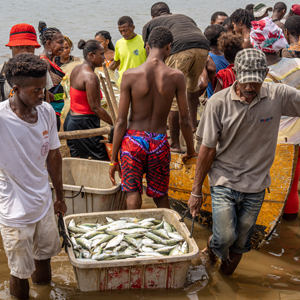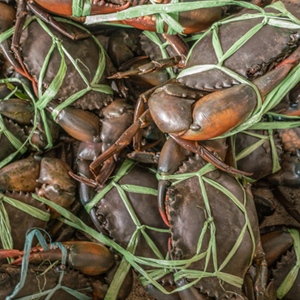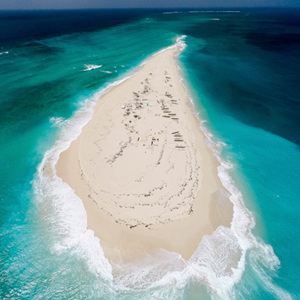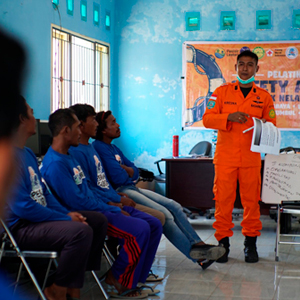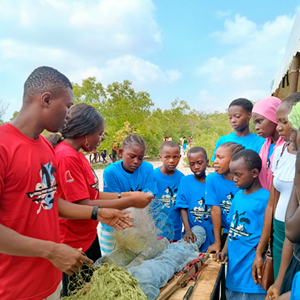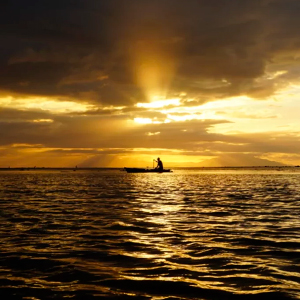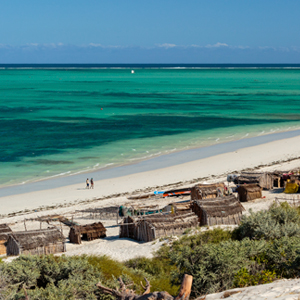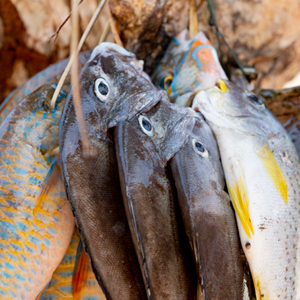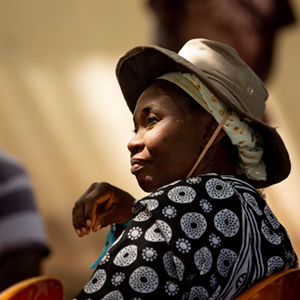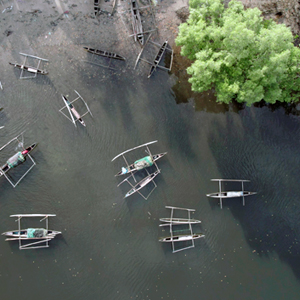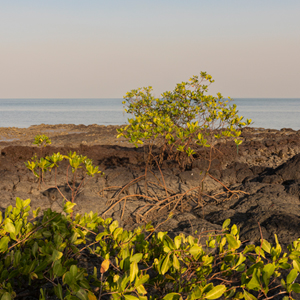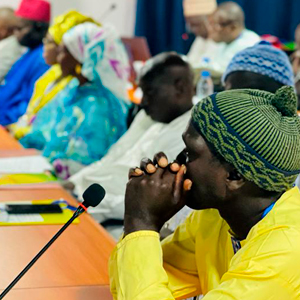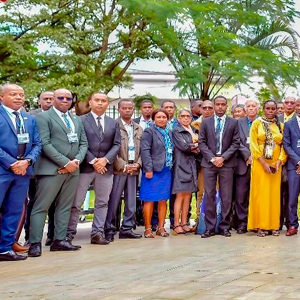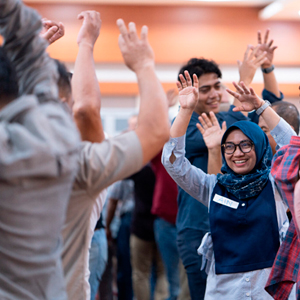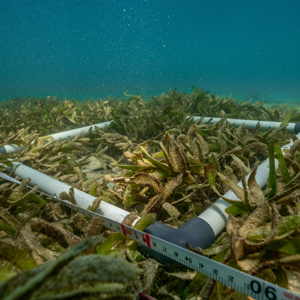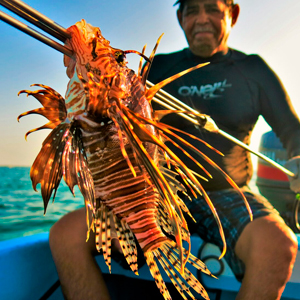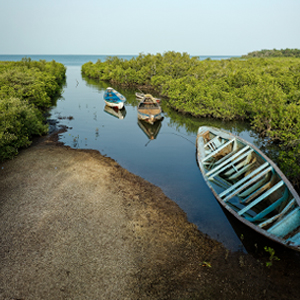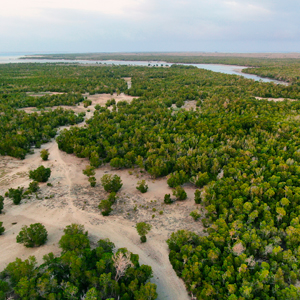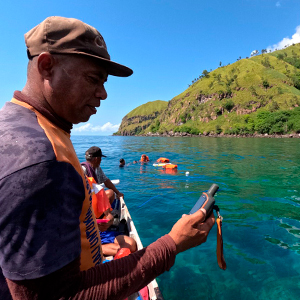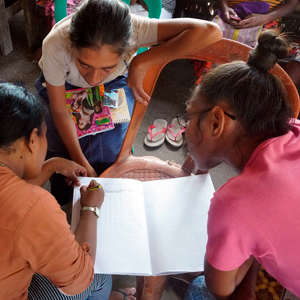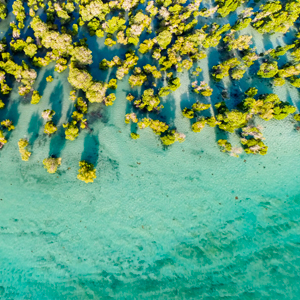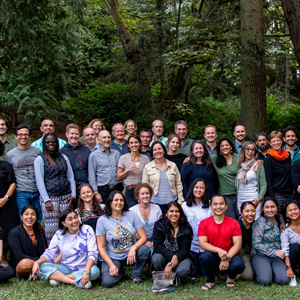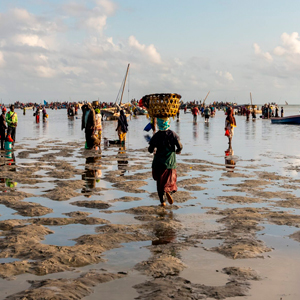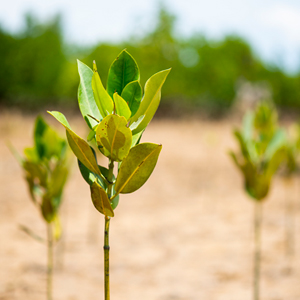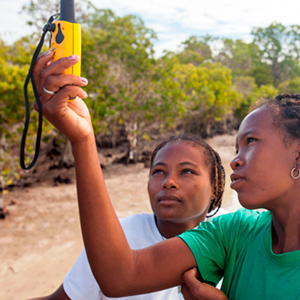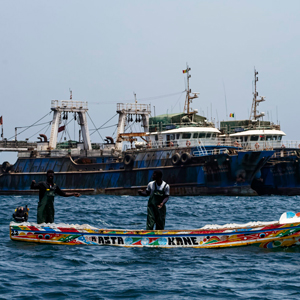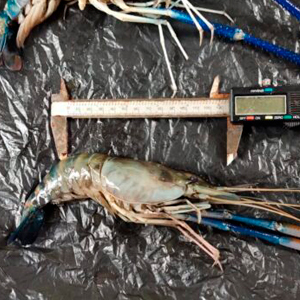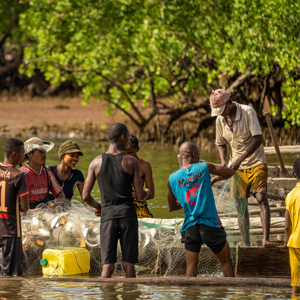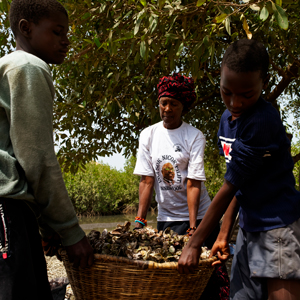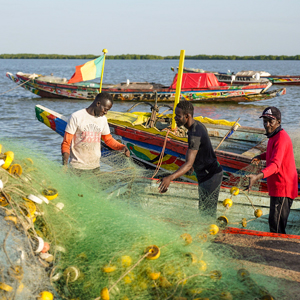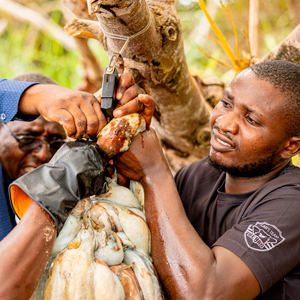Across the world our colleagues and partners are witnessing weather systems in disarray. From as far afield as Guinea Bissau and Mindanao, the reality of life in uncharted climatic territory is becoming clearer: extremes of drought, rain, wind and heat.
Yet despite the grim outlook, our seas have an incredible superpower: a natural ability to recover, regenerate and meet the challenges of global heating head on. And the networks of small-scale fishers, local communities and Indigenous peoples that we support have the knowledge and tools needed to unlock this superpower.
Across 14 countries and growing, we’re seeing time and again how local action to restore the ocean can regenerate fisheries, protect life and build food security. This is now a global marine conservation movement, led by and for small-scale fishers and coastal communities. It’s the most equitable, scalable and cost-effective way of safeguarding our seas, and maintaining the vital role that they play in supporting all life on earth.
Blue Ventures turned 20 in September and to celebrate, I returned to the community in southern Madagascar where it all began and reflected on all that we’ve achieved since with some of our first team members. Many of these staff are still with us today, and you’ll see their video stories peppered throughout this review.
The movement we’ve built over these two decades has only been possible thanks to our friends, partners, and thousands of supporters like you. We’re enormously grateful to everyone who has supported us to put coastal communities at the heart of efforts to rebuild fisheries and protect our oceans, both this year, and throughout the last twenty.
Together we can help turn the tide.

Dr Alasdair Harris
Founder and Executive Director
January 2023
We interviewed Armindo Marques, diving assistant turned conservation officer, about his work training community members to monitor some of the most biodiverse coral reefs on earth. Originating from a fishing family on the island of Atauro, Marques and his community wanted to understand how their livelihoods were being impacted by the ocean emergency and what decisions they should make to protect the reefs on which their community depends.
Also this month:
February 2023
We contributed to research showing how partially protected waters, such as Locally Managed Marine Areas (LMMAs), provide effective and equitable pathways for marine conservation.
The research looks at the Velondriake LMMA, supported by our team in Madagascar since its creation in 2006. Velondriake is a 650 square kilometre conservation area comprising permanent marine reserves, temporary no take areas, seasonal fishing restrictions, bans on destructive fishing gears, and areas zoned for mangrove reforestation and sustainable community-based aquaculture.
Also this month:
March 2023
Cyclone Freddy left a trail of destruction across Madagascar, Mozambique and Malawi, affecting millions of people, causing hundreds of deaths and displacing tens of thousands of people. For three weeks, Freddy ricocheted across the Mozambique channel shattering records to become the longest-recorded tropical cyclone. We spoke to traditional Vezo fishers from Morombe in Madagascar about the experience of communities on the frontlines of these weather extremes.
Also this month:
April 2023
For over a decade we’ve been working with communities in southern Madagascar to develop ecologically sustainable locally owned aquaculture businesses. This BBC radio documentary explored how the farms are providing communities with new, sustainable sources of income while alleviating pressure on overexploited fisheries.
Also this month:
May 2023
Investing in conservation leadership in East Africa
We expanded the African Marine Conservation Leadership Programme to include more organisations and leaders across the continent. We welcomed a new cohort of 16 senior leaders from community-based organisations across Mozambique, Kenya, and Tanzania.
We also started a new initiative, LeadUp, to support emerging leaders in the community-based conservation sector. We launched LeadUp’s first cohort in February, bringing together 30 emerging conservation leaders from Kenya and Tanzania.
Participants in both programmes joined us in September for the five-day African Community Conservation Forum, convened by our partner Maliasili.
Also this month:
June 2023
As the crisis facing our oceans and fishing communities intensifies, so do calls to ban bottom trawling, the most widespread form of destructive fishing. The Transform Bottom Trawling coalition, hosted by Blue Ventures, now comprises 75 members from 39 countries. We celebrated the launch of a new ocean protection campaign with the coalition’s European partners and launched an interactive map, detailing first hand accounts of the scale and impact of bottom trawling from across the world from as far afield as Sierra Leone, Chile, Indonesia and Scotland. We hosted webinars exploring different dimensions of the movement’s work.
Also this month:
July 2023
In Madagascar we have launched a new independent civil society observatory, Fitsinjo, based in Antananarivo, working to promote transparency in the island nation’s industrial fisheries. Drawing on diverse data sources, including community-led surveillance and investigative intelligence, Fitsinjo is shining a light on a sector that has operated largely out of the public eye and has witnessed huge expansion of illegal, unreported and unregulated (IUU) industrial fishing activity.
We’re also supporting Fitsinjo to develop an extensive participatory monitoring network mobilising communities around Africa’s longest coastline to gather real-time reports of industrial fishing activity.
Also this month:
August 2023
With recently strengthened legal status for Community Fisheries Councils (CCPs) in Mozambique, we’ve been supporting six CCPs to strengthen local marine conservation efforts in Cabaceira Pequena, Ilha de Moçambique and Chocas Mar.
Also this month:
September 2023
In partnership with community groups and Madagascar’s Ministry of Environment, we planted 14.5 million mangrove trees in Tsimipaika Bay. We shared experiences from our sustainable mangrove management work with Indonesian partners and communities in a learning visit to East Java.
Also this month:
October 2023
The first-ever African Community Conservation Forum brought together nearly 200 community conservationists and supporting organisations from 20 countries to strengthen partnerships and explore strategies to shift power and funding closer to communities.
Also this month:
November 2023
Drawing on experiences from hundreds of communities across the western Indian Ocean, Tanzania’s Songosongo archipelago celebrated the success of local fisheries management efforts.
Also this month:
December 2023
At dozens of events in COP28 we made the case for equity in climate finance and championed the importance of community-led nature-based solutions to the climate emergency. We welcomed a declaration from Timor-Leste to establish new marine protected areas to tackle destructive industrial fishing.
Also this month:
Share on:

